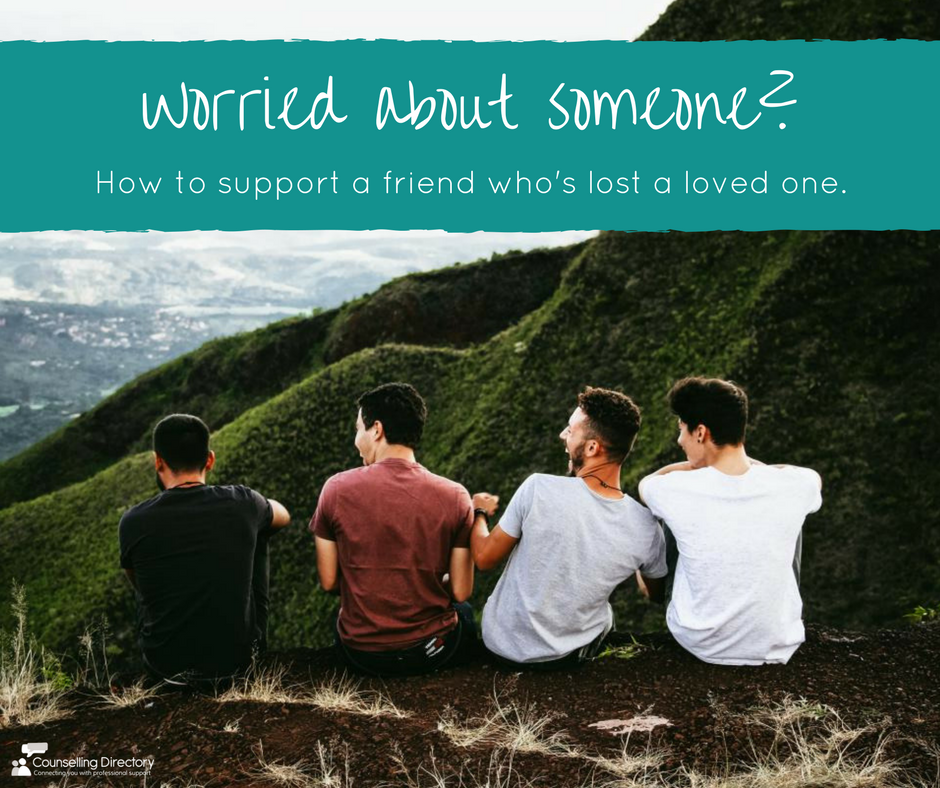How to support a grieving friend
Losing someone is never easy. Death is painful and cruel at any age, and many of us are left with a hole in our hearts, long after we’ve overcome the grieving process. While there is plenty of information on dealing with the loss of a loved one, what can you do when the person grieving is not you, but someone you care for?

If your friend has lost a loved one, you may be unsure of how to approach them. It’s easy to avoid the subject when under pressure, but your friend needs you.
We understand that it can be a little awkward – maybe they’re isolating themselves, perhaps seeming more aggressive. However they’re acting, remember what they’re going through. Grief affects people in many ways, so if they’re acting differently, it may be that they’re struggling to process what’s happened.
To make it less daunting, we look at the ways you can help your friend when they’re going through a tough time. Remember, you’re worried because you care, and they will appreciate you supporting them.
Listen
Sometimes, the best way to help a friend is to simply listen. Grief can leave a person confused, overwhelmed and exhausted, so they may not know exactly how or what to say. Suggest going for a walk or meeting in a coffee shop and give them the opportunity to let go of the emotion they’ve been holding on to.
If they’re not ready to talk yet, that’s OK. Grief works in mysterious ways and adjusting to this life change takes time. Send them a text or give them a phone call. Ensure they know you’re there and they can talk to you – whenever they’re ready.
Make them laugh
Talking is a powerful thing. It can help a person process their feelings and come to terms with what’s happened, but it’s not necessarily the first step. Laughter may not heal all wounds, but it can certainly raise a person’s spirits, and make them forget the pain they’re feeling – even just for a moment.
Take your friend out and spend the day doing what you love. Have fun, tell jokes and laugh. Remind them that they have a life beyond the grief and they have friends that care for them.
“Laughter is the brush that sweeps away the cobwebs of your heart.” – Mort Walker
Do your research
If you’re worried about a friend, but are finding it hard to understand how they’re feeling, make an effort to learn what they’re going through. They may not be comfortable talking just yet and they may appear defensive when questioned. This is a relatively normal reaction, so try not to take it personally.
Grief is often compared to waves on a beach. Sometimes they’re calm and gentle, other times they come crashing down, knocking you off your feet. So, do your research and try to understand the bereavement process. Learn the common reactions of grief and how long they typically last, though keep in mind that everyone experiences grief differently. Once you are aware of the process and support available, you can be more prepared to help your friend.
Offer support
If you’re really worried, talk to someone. This could be a parent, a teacher, a doctor or even a counsellor. You don’t need to tell them your friend’s name, but getting advice can help you know what to do next. If it’s come to the point where they are struggling to cope, they may need professional support and having you by their side can make it seem a lot less daunting.
And remember to look after yourself. Supporting a friend and worrying about someone you love can be incredibly overwhelming so ensure you are your own priority.
“It is not selfish to refill your own cup so you can pour into others – it is essential.”

Find a therapist dealing with Bereavement
All therapists are verified professionals





